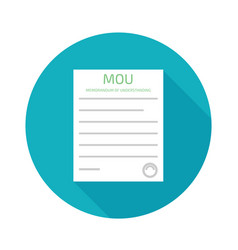Pengaruh Game Pembelajaran Terhadap Peningkatan Hasil Belajar Pemahaman Ilmu Pengetahuan Alam
Abstract
Abstrak: Tujuan dari penelitian ini yaitu untuk menguji adanya perbedaan hasil belajar pemahaman antara siswa yang menggunakan game pembelajaran dengan siswa yang tidak menggunakan game pembelajaran pada mata pelajaran Ilmu Pengetahuan Alam materi suhu dan perubahannya kelas VII MTs Raudlatul Ulum Karangploso. Metode penelitian yang digunakan adalah metode kuasi eksperimen Nonequivalen Control Group Design. Penelitian ini melibatkan 2 kelas yaitu kelas eksperimen dan kelas kontrol. Kelas ekperimen diberikan perlakuan menggunakan game pembelajaran, sedangkan kelas kontrol menggunakan pembelajaran ceramah. Masing masing diberikan pretest dan posttest. Hasil pengolahan data menunjukkan perhitungan nilai rata-rata post test dari kelas eksperimen sebesar 75,35 sedangkan kelas kontrol 63,21. Kesimpulan hasil penelitian yaitu terdapat perbedaan hasil belajar pemahaman antara kelompok yang menggunakan game pembelajaran dengan kelompok yang tidak menggunakan game pembelajaran. Hasil belajar pemahaman siswa yang menggunakan game pembelajaran lebih tinggi dibandingkan dengan kelompok yang tidak menggunakan game pembelajaran.
Abstract: The purpose of this study is to examine the differences in understanding learning outcomes between students who use learning games and students who do not use learning games on Natural Sciences subjects temperature material and changes in class VII MTs Raudlatul Ulum Karangploso. The research method used is a quasi-experimental Nonequivalent Control Group Design method. This research involves 2 classes, namely the experimental class and the control class. The experimental class was treated using a learning game, while the control class used lecture learning. Each was given a pretest and posttest. The results of data processing showed that the calculation of the average post-test score of the experimental class was 75.35 while the control class was 63.21. The conclusion of the research is that there are differences in understanding learning outcomes between groups that use learning games and groups that do not use learning games. Learning outcomes for students who use learning games are higher than those who do not use learning games
Keywords
Full Text:
PDFReferences
Alessi, Stephen M., & Trollip, Stanley R. (2001). Multimedia for Learning Methods and Development. 3rd. ed. Massachusetts : Allyn & Bacon A Pearson Education Company.
Cheng, M. T., Chen, J. H., Chu, S. J., & Chen, S. Y. (2015). The use of serious games in science education: a review of selected empirical research from 2002 to 2013. Journal of computers in education, 2(3), 353-375.
De Aguilera, M., & Mendiz, A. (2003). Video games and education: (Education in the Face of a “Parallel School”). Computers in Entertainment (CIE), 1(1), 1-10.
Dondlinger, M. J. (2007). Educational video game design: A review of the literature. Journal of applied educational technology, 4(1), 21-31.
Eccles, J. S. (1999). The development of children ages 6 to 14. The future of children, 30-44.
Giammarco, E. A., Schneider, T. J., Carswell, J. J., & Knipe, W. S. (2015). Video game preferences and their relation to career interests. Personality and Individual Differences, 73, 98-104.
Jabbar, A. I. A., & Felicia, P. (2016). Towards a conceptual framework of GBL design for engagement and learning of curriculum-based content. International Journal of Game-Based Learning (IJGBL), 6(4), 87-108.
Jamaludin. (2015). Pembelajaran Perpsektif Islam. Bandung: PT Remaja Rosdakarya Ofset.
Kahn, A. S., Shen, C., Lu, L., Ratan, R. A., Coary, S., Hou, J., ... & Williams, D. (2015). The Trojan Player Typology: A cross-genre, cross-cultural, behaviorally validated scale of video game play motivations. Computers in Human Behavior, 49, 354-361.
Kocadere, S. A., & Çağlar, Ş. (2015). The design and implementation of a gamified assessment. Journal of e-Learning and Knowledge Society, 11(3).
Lee, L. (2015). Digital media and young children's learning: A case study of using iPads in American preschools. International Journal of Information and Education Technology, 5(12), 947.
Lestari, A., Widiyatmoko, A., Alimah, S., & Juliyani, I. (2015). Sounds Learning Using Teams Games Tournament With Flash Card As Media At The 13Th Junior High School Of Magelang. Jurnal Pendidikan IPA Indonesia, 4(2).
Maslani. (2017). Meningkatkan Hasil Belajar Dan Keaktifan Siswamelalui Permainan (Game) Ranking Ipada Materi Norma Dalam Kehidupan Bersama Di Kelas VII A SMPN 4 Pelaihari. Jurnal Pendidikan Kewarganegaraan Vol. 6, No. 2.
Nanang. (2017). Pengaruh Pembelajaran Tutorial Berbasis Multimedia Interaktif Terhadap Peningkatan Motivasi Dan Hasil Belajar Siswa Pada Pokok Bahasan Statistika. Jurnal Teknologi Pendidikan Dan Pembelajaran, 190-191.
Pischetola, M. (2011). Digital media and learning evolution: A research on sustainable local empowerment. Global media journal, 10(18).
Priana, R. Y. (2017). Pemanfaatan Vlog Sebagai Media Pembelajaran. Prosiding Seminar Nasional Pendidikan, 1-2.
Rahman, R. A., & Tresnawati, D. (2016). Pengembangan Game Edukasi Pengenalan Nama Hewan Dan Habitatnya Dalam 3 Bahasa Sebagai Media Pembelajaran Berbasis Multimedia. Jurnal Algoritma, 13(1), 184-190.
Ramadhan, H. F., Sitorus, S. H., & Rahmayuda, S. (2019). Game Edukasi Pengenalan Budaya Dan Wisata Kalimantan Barat Menggunakan Metode Finite State Machine Berbasis Android. Jurnal Komputer dan Aplikasi. 07(1), 108-119
Reeves, T. C. (1998). The impact of media and technology in schools. Journal of The Journal of Art and Design Education, 2, 58-63.
Rohwati, M. (2012). Penggunaan education game untuk meningkatkan hasil belajar IPA biologi konsep klasifikasi makhluk hidup. Jurnal Pendidikan IPA Indonesia, 1(1).
Rutten, N., Van Joolingen, W. R., & Van Der Veen, J. T. (2012). The learning effects of computer simulations in science education. Computers & Education, 58(1), 136-153.
Sadiman, Arief S., Rahardjo, R., Haryono, A., & Harjito. (2014). Media Pendidikan (Pengertian, Pengembangan dan Pemanfaatan). Jakarta: Rajawali Pers
Samsul, A. H. (2016). Game Edukasi Cepat Tepat Dengan Metode Finite State Machine (Fsm) Pada Smartphone. Malang: Universitas Islam Negeri Maulana Malik Ibrahim.
Santoso, M. (2019). Rancang Bangun Game Edukatif Duta Indonesia (Dadu Dan Peta) Indonesia. Konstruktivisme : Jurnal Pendidikan Dan Pembelajaran, 11(1), 20-31.
Sugiyono. (2014) Metode Penelitian Kuantitatif Kualitatif dan R&D. Bandung : Alfabeta
Suprijono, A. (2009). Cooperative Learning: Teori dan Aplikasi PAIKEM. Yogyakarta: Pustaka Pelajar.
Tabor, S. W., & Minch, R. P. (2013). Student Adoption & Development of Digital Learning Media: Action Research and Recommended Practices. Journal of Information Technology Education, 12.
Vitianingsih, A. V. (2016). Game Edukasi Sebagai Media Pembelajaran Pendidikan Anak Usia Dini. Jurnal INFORM Vol. 1, No. 1, ISSN: 2502-3470
Wifda, A. R. (2015). Pengembangan Game Edukasi Lingkungan Berbasis Android. Yogyakarta: Univesitas Negeri Yogyakarta.
Zuhriyah, S. (2016). Pemanfaatan Media Dalam Peningkatan Kualitas Pembelajaran. Prosiding Temu Ilmiah Nasional Guru, 522.
DOI: http://dx.doi.org/10.17977/um038v3i22020p199
Refbacks
- There are currently no refbacks.
Copyright (c) 2020 Syarif Hidayatulloh, Henry Praherdhiono, Agus Wedi

This work is licensed under a Creative Commons Attribution-ShareAlike 4.0 International License.
JKTP: Jurnal Kajian Teknologi Pendidikan published by Department of Educational Technology, Faculty of Education, State University of Malang in Collaboration with Asosiasi Program Studi Teknologi Pendidikan Indonesia (APS TPI).
Publisher Address:
Lab. Teknologi Pendidikan, Gd.E2, Lt.1
Fakultas Ilmu Pendidikan Universitas Negeri Malang
Jl. Semarang 5, Kota Malang Email: jktp.fip@um.ac.id
========================================================================================================
| INDEXED BY | TOOLS | PLAGIARISM CHECK | ARTICLE TEMPLATE |
|
|

JKTP: Jurnal Kajian Teknologi Pendidikan is licensed under a Creative Commons Attribution-ShareAlike 4.0 International License.
JKTP Statistics (Since July 13th, 2020)





.png)












